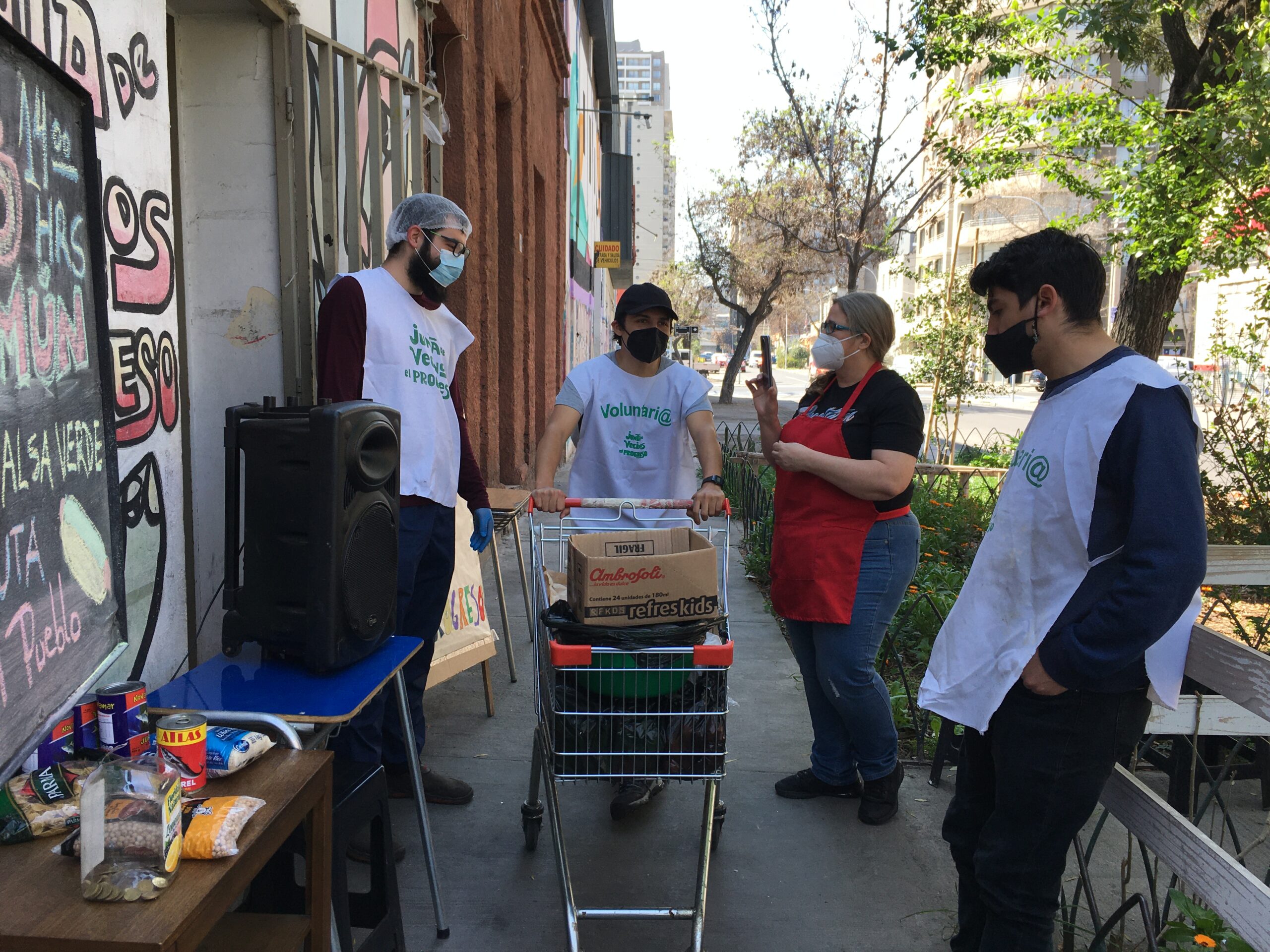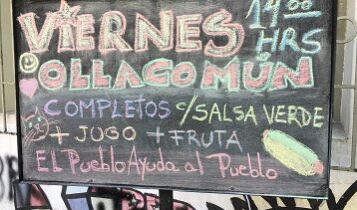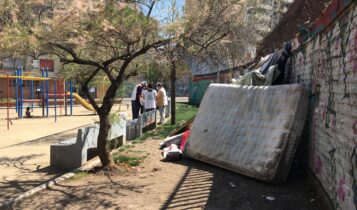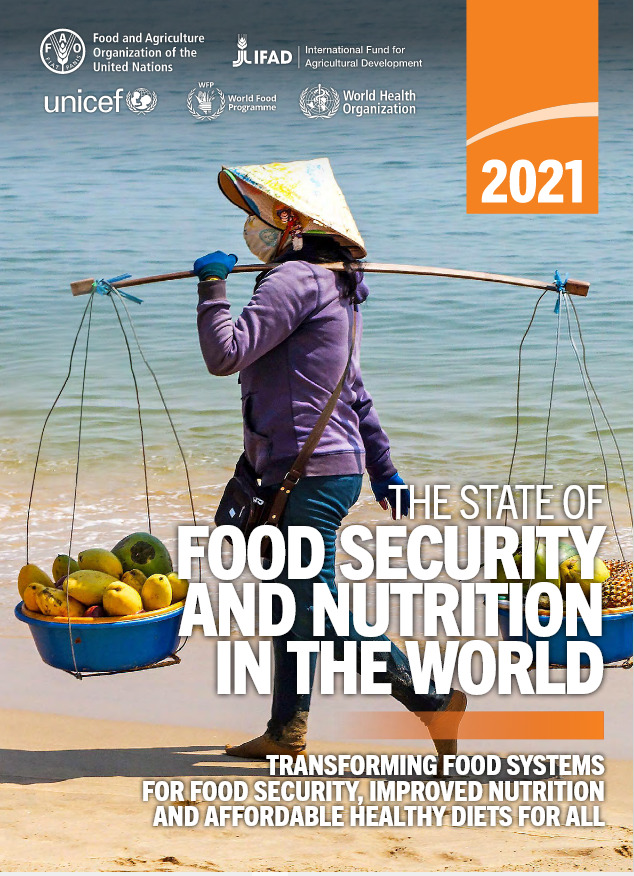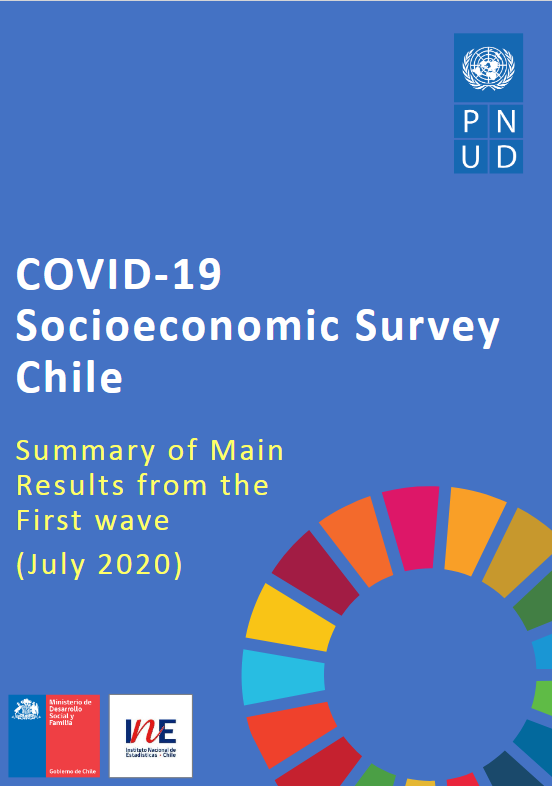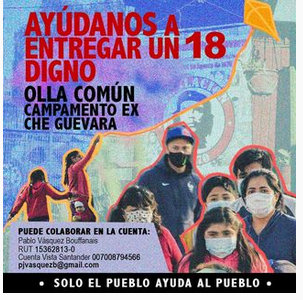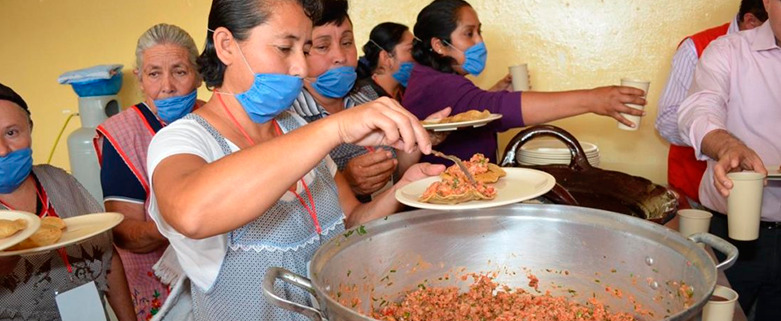Due to the advance of COVID-19 – during 2020 – neighbors, friends and families from popular neighborhoods in Chile organized “common pots”, a form of popular organization where, through the delivery of homemade meals, food was assured to thousands of people impoverished and unemployed by the pandemic. In 2021, the “Ollas Comunes” or “Common pots” across the country face new challenges: to continue the project despite the low donations and the return to “normal” life of the members who contribute it. However, the “Common Pots”, after their extensive work, also reap some fruits: networks between organizations, links and regeneration of the social fabric, as well as future continuity projects.
When the month of September arrives, the hearts of Chileans feel lighter. The worst part of winter is behind us, the beginning of spring is approaching and with it “the national holidays” also appear. In other words, the days when citizens can celebrate are ahead of us.
The calendar marks Friday, September 17, and the sky in Santiago de Chile, the country’s capital, is blue. The air is fresh and the city has little traffic. Families gather to eat “empanadas de pino” and to drink “Earthquakes”, a traditional chilean drink. This is the first celebration of national holidays in which Chileans can celebrate with relative normalcy after the coronavirus crisis and the social outburst occurred in October 2019.
In the neighborhood of Santiago Centro, two types of architecture coexist, tall buildings built a few years ago where families, young people, adults, children, migrants lives next to old and small houses that are testimony of an ancient time where Santiago – was not a megalopolis – but a city where indigenous people, peasants and workers came to make a living (1960).
On the streets named “Coquimbo 321”, you will find the “El Progreso” Neighborhood Council of Santiago Centro. A community organization of a territorial nature, representative of the people who reside in the same neighborhood and whose purpose is to promote the development of the community, defend the interests and ensure the rights of the neighbors.
The clock marks 1:00 p.m. and inside this old house there are at least 40 people preparing the meal for the day. As it is a national holiday, the meal prepared for today is “Completos”, a bread with Viennese and onion and parsley that is eaten on days of celebrations. A man in his 50s passes by outside the venue and orders lunch. He receives two “completos”, a juice box and a piece of fruit. The atmosphere is chill and relaxed.
On a long tour
There is a song in Chile, called “En un Largo tour” composed by the band “Sol y Lluvia” – which was part of the cultural resistance against the Pinochet dictatorship whose lyrics sings: “At this hour, precisely at this hour, when your brain begins to turn off with the latest soap opera – I would like to take you out for a walk – On a long tour – Through Pudahuel and La Bandera – Through Pudahuel and through La Legua – And you would see life as it is ”.
The song alludes to the disconnection of some people with the social reality of Chile in times of dictatorship. The same emotion can be transferred to Chile and the social reality that arises after the mobility restrictions due to Covid have dropped. The quick drop of new coronavirus cases associated with the wide vaccination coverage of the population in the country, has resulted in optimism and a feeling of return to normality. However, there is a galloping increase in poverty and, therefore, in food insufficiency.
According to the report “The state of food security and nutrition in the world”, released in July 2020 by the United Nations, food insecurity in Chile reached 15.6 percent of the population before the pandemic and 3.8 percent (700 thousand people) suffer from severe food insecurity. This means that almost three million people in our country do not have regular access to sufficiently nutritious food.
The current health crisis has deepened this phenomenon. The COVID Social Survey of the Ministry of Social Development of July 2020 showed a worrying increase in this figure to 19.4 percent. This same study in November 2020 shows that 71 thousand households in Chile suffer from severe food insecurity. This topic seems to be invisible. This is why the “Olla Común” El Progreso Neighborhood Council delivers food every Thursday and Friday to more than 400 people.
Valeria Bustos, president of “Junta de Vecinos El Progreso”, leads a team of 40 people who organize a common pot every Friday and deliver food rations to homeless people. In April 2021, Valeria and her volunteers delivered food to nearly 200 people. “Due to the worsening of poverty there are now 400 servings. All monetary contributions are self-managed ”, she indicates.
This Friday, September 17: Adrian, Manuel, Nicolás and Roger embark on a three-hour journey to deliver two “completos”, a juice and a fruit to every homeless person they found in their route. They walk through the streets of Santiago Centro with a supermarket cart where they carry food rations. The beneficiaries of this ” Ruta Calles” live in squares, corners and parking lots. They are mostly middle-aged men but there are also women with children. “They are mostly people who do not have the means to support a place to sleep,” explains Roger, an English teacher, who has been a volunteer for the Junta de Vecinos “El Progreso” for a year.
As these young men deliver food to homeless people, the city and their citizens seem to be enjoying the national holidays. Every time a meal is shared, a kind word is delivered as well. A lot of homeless people experience deep loneliness and they don’t have a support system to rely on.
Pandemic and return to the “new normal”
“We are working very hard because the “Ollas Comunes” are not in the spotlight. With the return to the “new” normal in the chilean society after a drop in coronavirus cases, people tend to think that “Ollas Comunes” are not important anymore, but still people come and ask for food”, says Pablo Vasquez, one of the organizers and participants of the Olla Común Campamento “Che Guevara” de Lo Prado.
“The money contributions have dropped and we have had to look for new ways to get money or food donations”, indicates Pablo whose Olla Comun delivered 150 rations of food three times a week during 2020.
“Now we only deliver lunch twice a week,” he adds. The reasons for this new scenario – from his point of view – are two: People who participate in the “Common Pot” cannot go because we are returning to regular work and because money contributions have dropped”, states Pablo.
In the case of the Common Pot of the “Ex Camp Che Guevara de Lo Prado”. Manuel, Pablo’s brother and main cook at La Olla Común, cannot show up regularly because he has a new job. “I also went back to my face-to-face work,” he explains.
And he adds: “The other participants in La Olla, for example, are also in the same situation. For example, Norma went back to work in the mornings, which leaves less time for the Common Pot and the other participants show a natural fatigue due to the work they have done, ” he explains.
“We continue working in the” Common Pot “because we have a commitment not to leave the people and users of the Olla Común without lunch, but there is a lack of economic and human resources to continue,” he indicates.
A third difficulty that the “Common Pots” are facing is the rise in prices of basic inputs for food such as fruits and vegetables: “Gas was at 17 euros and now at 22 euros approximately in addition to a rise in prices like vegetables, fruit and meats. They have become more expensive. All these rises add up and cooking food becomes more and more expensive, “explains Pablo.
Ollas Comunes: A dynamic place to develop a support system
As of September 2021, there are still no official figures for the number of “Ollas Comunes” in Chile. There is only a projection of the same social organizations that keep a cadastre and map of the Common Pots in Chile. According to Paloma Ahumada, a sociologist who runs the @ComunOlla account on Twitter, there were 490 “pots” that deliver about 70,000 daily rations. This figure applies to March 2021 because as the year progressed, many common pots closed.
“Some closed because they had fewer users, but also because people’s donations decreased. There is an idea that we are back to the new normal and that the pandemic is over but it is not. People who do not see poverty in the face think that we are in a state of normality but the truth is that we are in a crisis that will take years to solve, “says Ahumada about the food insecurity that grows in the country.
The participants of the “Common Pots” are very aware of the challenges in terms of food insecurity that the country will face: “This 2021, there are less “Ollas Comunes” working for the neighbors. However, throughout this pandemic we have been able to generate a network of “Common Pots” throughout the country, which has allowed us to make visible and articulate ourselves in the work we do ”, Pablo affirms.
And he explains: “If we close the “Common Pot ”probably the person who visited us will not die of hunger but will continue to eat poorly. Therefore, we want, together with other common pots, to generate something that would serve to continue channeling this aid contribution, or to generate public policies related to that. We want to create a group that projects, ensures and works towards a better food quality and that has the greatest need “, she indicates.
And he ends on a positive note about the experience of the “Olla Comun Ex Campamento Che Guevara de Lo Prado Camp ”: “Due to the Olla Comun, we were able to built links and networks have been regenerated between neighbors who have manifested themselves in anniversary celebrations and of festivals such as “Children’s Day”, as well as national holidays “, he relates.
“From our experience, the “Common Pot” has become a channel for support activities between neighbors and children. It is a catalyst for activities between neighbors. Thanks to the activity of the Common Pot, links and a strengthening of the social fabric have been generated “, he concludes.
“If we can generate, from the point of view of public policies, early prevention interventions in mental health, we will have a tremendous impact on the health of the general population. In many countries, especially in Latin America, we need to invest in a public policy of mental health care at an early age and that it is maintained over time. Urgently”, he concludes.
Marta Apablaza Riquelme is a freelance science journalist based in Santiago, Chile
Also read: Two years later, families in Kenya’s informal settlements are still food insecure and The fresh food in this outdoor fridge is for everyone who need it
SUPPORT DDRN SCIENCE JOURNALISM. DONATE DKK 20 OR MORE![]() (APPLICABLE IN DENMARK ONLY)
(APPLICABLE IN DENMARK ONLY)
Live webinar: The impact of Covid-19 on food provision
Time: Thursday 18 November 2021,12:30 am (GMT+1)
Presenters: Verah Okeyo, Kenya; Marta Apablaza, Chile and Irene Valentina di Lauro, Denmark.
Place: Online (Zoom), Register by e-mail: info@ddrn.dk
